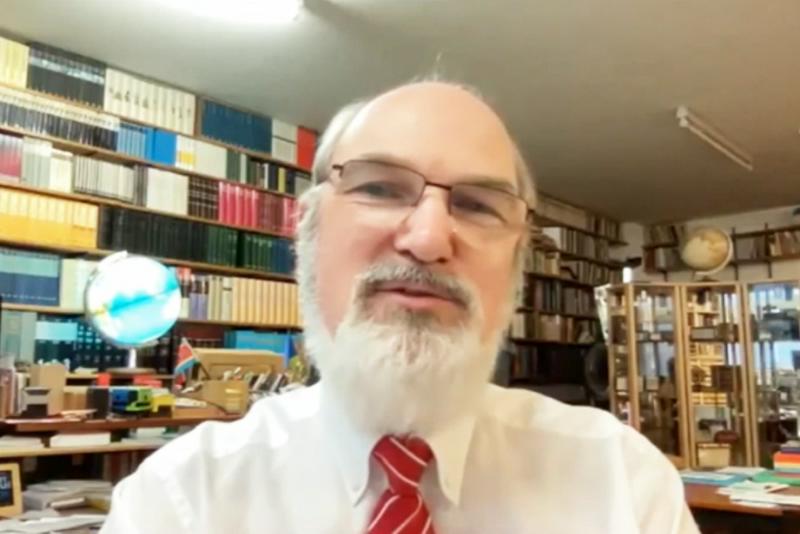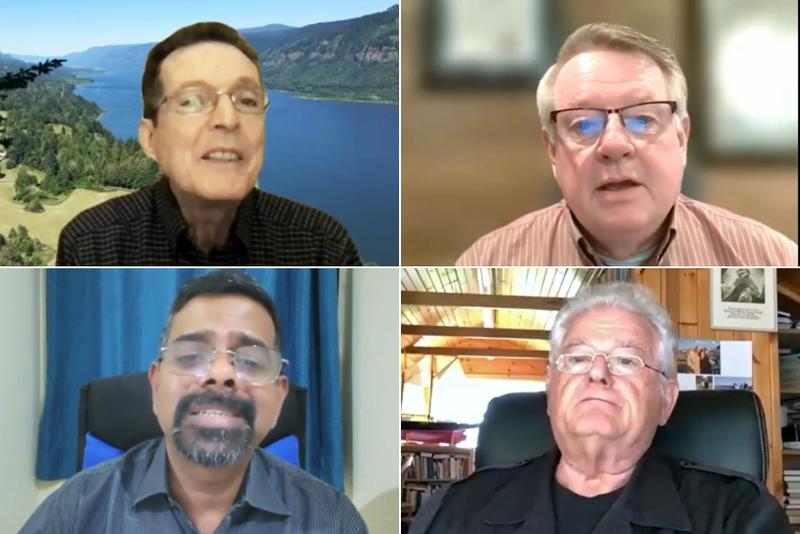An online conference was held in observance of the United Nations' International Anti-Corruption Day, promoting integrity as a personal character and a church battlefield, through strategies, collaborative efforts as well as personal callings.
On December 9, the UN International Anti-Corruption Day, the Global Network for Integrity and Anti-Corruption (GIN) held an online conference titled “Integrity — Fighting the Evil of Corruption”.
The Global Integrity Network is “an issue network of the World Evangelical Alliance and the Lausanne Movement on Integrity and Anti-Corruption - which is a response to the Call to Action of The Cape Town Commitment for the church to identify and expose corruption in the church and society and to renounce and repent from this menace in the name and authority of Jesus as Lord.”
Dr. Manfred Kohl, a catalyst at the Global Integrity Network, opened the conference with an address titled “Integrity is a Personal Issue”, highlighting the importance of nurturing a Christian character of integrity, springing from the obedience to God.
In his speech, Dr. Kohl painted the picture of a Christian life without integrity - “knowing what God wants on one side, but doing what we want on the other” - like Jonah, who clearly understood God’s instruction to Nineveh yet chose to go against it. He pointed out that such a lack of integrity, which was manifested as a discrepancy between what one looks like and what one actually does, could be attributed to the lack of complete obedience to God.
Dr. Kohl observed that culture sometimes was used as an excuse for practices of corruption - telling lies or half-truths. With regards to this, he firmly stated that “for us Christians, the Word of God must be above culture... the Scripture tells us, there should be yes or no, nothing in the middle as a half-truth.”
“For me, it really helps to set priorities in my life... my relationship with God is number one,” he said. “To be praised and recognized by man is good for a short time. Yet if God sees me honest and correct in every way, that has lasting eternal results.”
With years of experience in pastoral roles, Dr. David Bennett, the Global Associate Director of Collaboration and Content at Lausanne Movement, shared insights into promoting integrity as a church.
In his talk “The Church: A Bastion of Integrity and A Bulwark against Corruption”, he explained that the word “integrity” referred to the idea of “being whole, not divided” and “completeness and consistency”.
He reviewed the fact that the Church had been devoted to a long-standing struggle for integrity, from the judgment on Ananias and Sapphira in Acts 5, to the recent Cape Town 2010 Lausanne Congress which called for humility, integrity, and simplicity. Many denominations were established to be separated from a bigger corrupted congregation and to keep integrity.
Dr. Bennett highlighted four important issues for the pursuit of integrity in churches: leadership, evangelism, discipleship, and theology of sanctification.
“Integrity begins with the leader; integrity is the basis for effective evangelism; integrity requires obedience-based discipleship in the context of the Christian community; integrity is rooted in grateful response to the gospel”, he concluded.
Bishop Thomas Schirrmacher, the Secretary-General of WEA and the President of the International Council of the International Society for Human Rights, introduced three powerful strategies to tackle corruption internationally.
Before looking into the practical strategies, the bishop first revealed the nature of corruption from a theological perspective. “Corruption is the term for the sin we inherited from Adam, and which we pass on from generation to generation.” He reminded that corruption had a much deeper root than obtaining money illegally - it was the sin of greed, which had contaminated the inner-most being of all mankind.
Regarding the global strategy against corruption, Bishop Schirrmacher firstly said that organizations should aim to improve corruption measuring and transparency so that the reported corruption results could be convincing and trustworthy. He encouraged all Christians who have expertise and experience in this area to get involved.
The second powerful tool, according to the bishop, was establishing a code of ethics, especially concerning finance. He recommended building a code of ethics from scratch involving everyone in the organization, which could be much more stable than copying a ready-made code of ethics.
The third and most important strategy was about how an organization deals with whistle-blowers. Organizations should provide channels for whistle-blowers, who often not only have the information but also documentation about misused funds, to reveal what they know.
Dr. Willy Kotiuga, chairman of the Board of Regents of Bakke Graduate University and a practising senior engineer, called for collaborative efforts to combat corruption.
Having experienced a corruption investigation in the company that he worked at for 25 years, Dr. Kotiuga said “corruption creates collateral damage that affects everyone, including the innocent.” As he decided to devote himself to the fight against corruption, he found that corruption had been so deeply rooted and prevalent, that Christians need to be proactive, yet no one should fight alone.
According to Dr. Kotiuga, various international organizations have made efforts in combating corruption, including the UN Convention Against Corruption and Transparency International, which launched Corruption Perceptions Index and Global Corruption Barometer.
“When was the last time that we have prayed for our leaders?” Questioned Dr. Kotiuga. “What are the specific things we can do today and every day of the year? One, we can take a pledge against corruption, and we can renew our commitment every day.” He encouraged people to stay informed by receiving newsletters from anti-corruption organizations and praying for particular issues.
Anti-corruption efforts could potentially lead people to God. “We can also use this accountability as a steppingstone for people to realize that they are sinners. Most of the world do not see themselves as sinners, because they don’t feel accountable to anyone. Have we ever thought of using the ethics and anti-corruption efforts as a steppingstone to teach people that they are accountable to God Almighty?”
Arpit Waghmare, the founding coordinator of Transition Network and the Operation Nehemiah movement, closed the conference with a call to action.
Waghmare referred to the experience of Elijah in 1 Kings, where Elijah was in despair because the enemy was strong while he seemed to be the only one who was jealous for God, yet God told him “I will leave seven thousand in Israel, all the knees that have not bowed to Baal.” Waghmare encouraged that God had prepared fellow Christians so that no one was alone in this battle against evil corruption which could seem endless.
Waghmare challenged listeners with two calls. One was a call to a broken spirit. “Recognizing our own frailty is a good thing. Integrity is a constant journey of owning up the fact that we have our own idols and that we need to repent.”
The other call was a call to courage. “Once we get out of our own self-righteousness, we become free to be consumed by the burdens from God and his agenda, so that he can fill us with courage beyond our natural capacity.”













